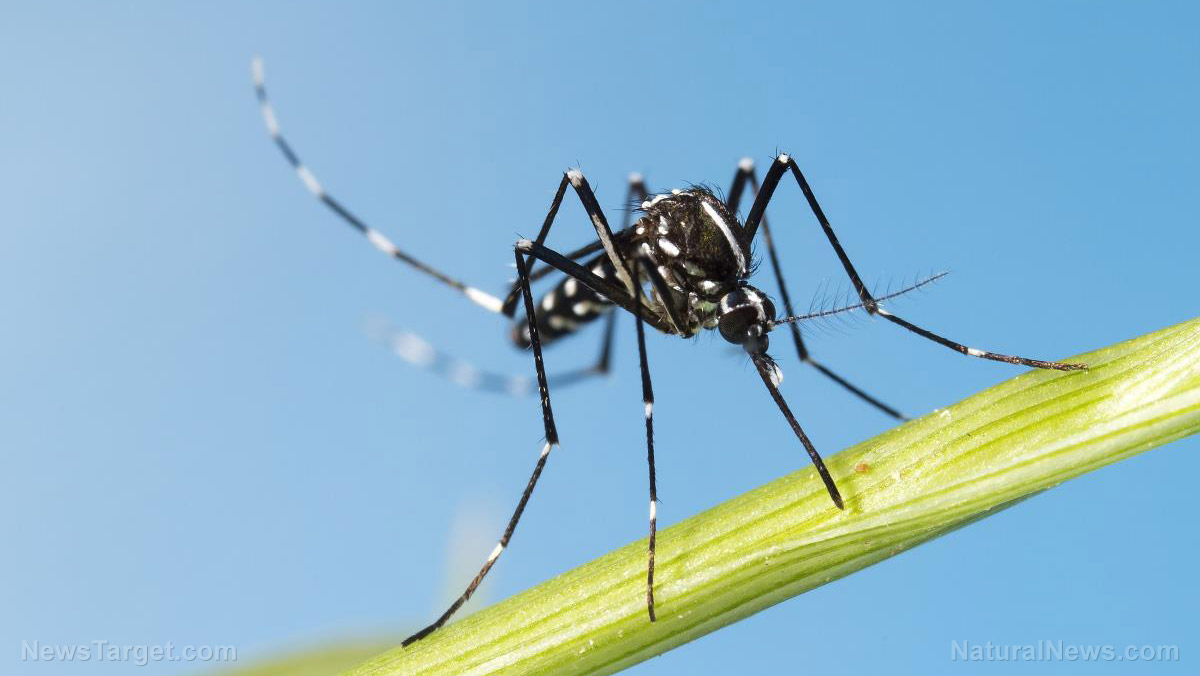
On Thursday, April 29, workers from British biotech firm Oxitec placed boxes of mosquito larvae into six yards in the Florida Keys. They then added water.
In a week, some 12,000 genetically modified (GM) male Aedes aegypti mosquitoes will emerge out of each box, making the first batch of GM mosquitoes released in the United States.
Oxitec and the Florida Keys Mosquito Control District (FKMCD) announced last week that the GM mosquitoes will emerge each week for twelve weeks from six locations the Keys: two on Cudjoe Key, one on Ramrod Key and three on Vaca Key. Up to a billion GM mosquitoes are expected to be released over a two-year period.
Oxitec’s non-biting GM male mosquitoes will mate with local biting female mosquitoes. The males come with a built-in “death mechanism” that allows them to pass on a lethal gene to viable female offspring. This gene prevents female offspring from surviving to adulthood, thus controlling local mosquito populations.
The GM mosquitoes also possess a gene that serves as a fluorescent marker that glows under a special red light. Oxitec said mosquitoes at target locations will be monitored against those at untreated sites as part of the project, which was approved by the Environmental Protection Agency (EPA).
The Centers for Disease Control and Prevention (CDC) and the University of Florida, among other institutions, will evaluate the project.
Local officials said the trials are necessary at a time when pesticides are becoming increasingly ineffective against the mosquitoes, which are notorious for transmitting dengue fever, chikungunya and Zika.
In a statement, Oxitec said A. aegypti mosquitoes make up only four percent of the mosquito population in the Keys. However, they are responsible for virtually all mosquito-borne diseases. Therefore, the project would help protect people against mosquito-borne diseases by effectively controlling A. aegypti populations.
Oxitec and the FKMCD have emphasized that the lethal gene has no effect on male mosquitoes. And since only female mosquitoes bite, the project poses no real threat to humans.
Locals oppose project
Locals are not ecstatic about the project and are calling on the EPA to end the “live experiment.” Barry Wray of the Florida Keys Environmental Coalition said people in Florida do not consent to the release of the GM mosquitoes nor do they consent to be human experiments.
Meanwhile, a local from Monroe County recalled how two uniformed men visited her home last week to conduct “mosquito control.” She said she signed a waiver and only later found out she had agreed to the Oxitec project.
“This is a dark moment in history,” said Dana Perls of the international environmental organization Friends of the Earth. “The EPA must halt this live experiment immediately.” Perls added that the release of the GM mosquitoes puts locals, the environment and endangered species at risk in the midst of a pandemic.
In March, a panel of independent experts testified to the FKMCD board that GM mosquitoes could pose significant threats to sensitive ecosystems and human populations in the Florida Keys. (Related: Bill Gates wants to deploy genetically modified mosquitoes to inject vaccines.)
Local residents also pointed out that the EPA did not require Oxitec to submit peer-reviewed articles or conduct preliminary trials prior to approving the firm’s project.
The CDC has agreed to review data provided by Oxitec. However, a Florida Keys resident who emailed the agency about the project received a response dated April 12, which stated that the CDC is not formally involved in any evaluation of the project at the time. The CDC is also not overseeing the trial and does not plan to conduct any health assessment before, during or after the trials.
“I truly believe we are fighting one of the most consequential regulatory malfunctions we could ever imagine,” said Wray.
Learn more about the environmental impacts of GM insects at BioTech.news.
Sources include:
Please contact us for more information.




















